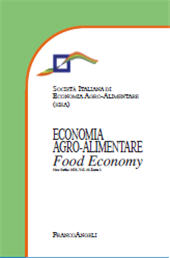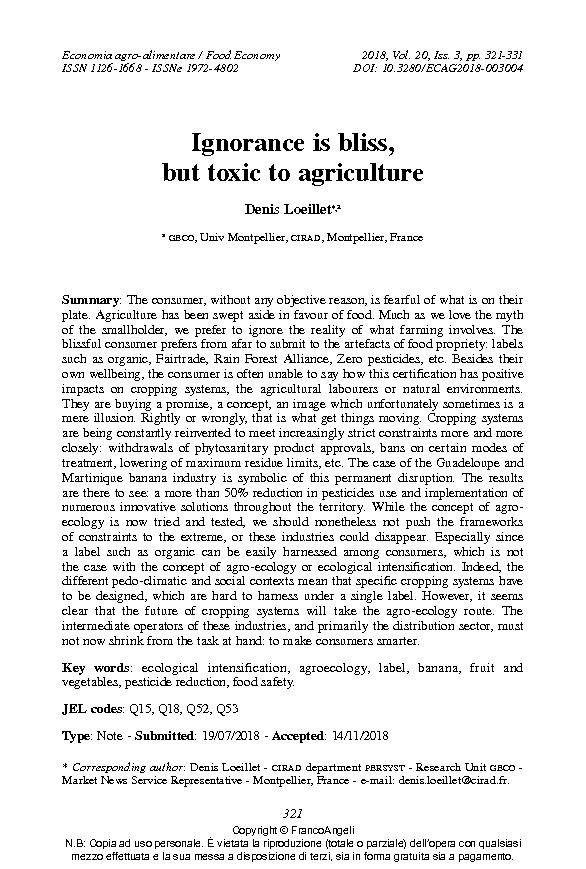Ignorance is bliss, but toxic to agriculture
321-331 p.
The consumer, without any objective reason, is fearful of what is on their plate. Agriculture has been swept aside in favour of food. Much as we love the myth of the smallholder, we prefer to ignore the reality of what farming involves. The blissful consumer prefers from afar to submit to the artefacts of food propriety: labels such as organic, Fairtrade, Rain Forest Alliance, Zero pesticides, etc. Besides their own wellbeing, the consumer is often unable to say how this certification has positive impacts on cropping systems, the agricultural labourers or natural environments. They are buying a promise, a concept, an image which unfortunately sometimes is a mere illusion. Rightly or wrongly, that is what get things moving. Cropping systems are being constantly reinvented to meet increasingly strict constraints more and more closely: withdrawals of phytosanitary product approvals, bans on certain modes of treatment, lowering of maximum residue limits, etc. The case of the Guadeloupe and Martinique banana
industry is symbolic of this permanent disruption. The results are there to see: a more than 50% reduction in pesticides use and implementation of numerous innovative solutions throughout the territory. While the concept of agroecology is now tried and tested, we should nonetheless not push the frameworks of constraints to the extreme, or these industries could disappear. Especially since a label such as organic can be easily harnessed among consumers, which is not the case with the concept of agro-ecology or ecological intensification. Indeed, the different pedo-climatic and social contexts mean that specific cropping systems have to be designed, which are hard to harness under a single label. However, it seems clear that the future of cropping systems will take the agro-ecology route. The intermediate operators of these industries, and primarily the distribution sector, must not now shrink from the task at hand: to make consumers smarter [Publisher's text].
Is part of
Economia agro-alimentare : XX, 3, 2018-
Articles from the same issue (available individually)
-
Information
ISSN: 1972-4802
DISCIPLINES
KEYWORDS
- Ecological intensification, agroecology, label, banana, fruit and vegetables, pesticide reduction, food safety



